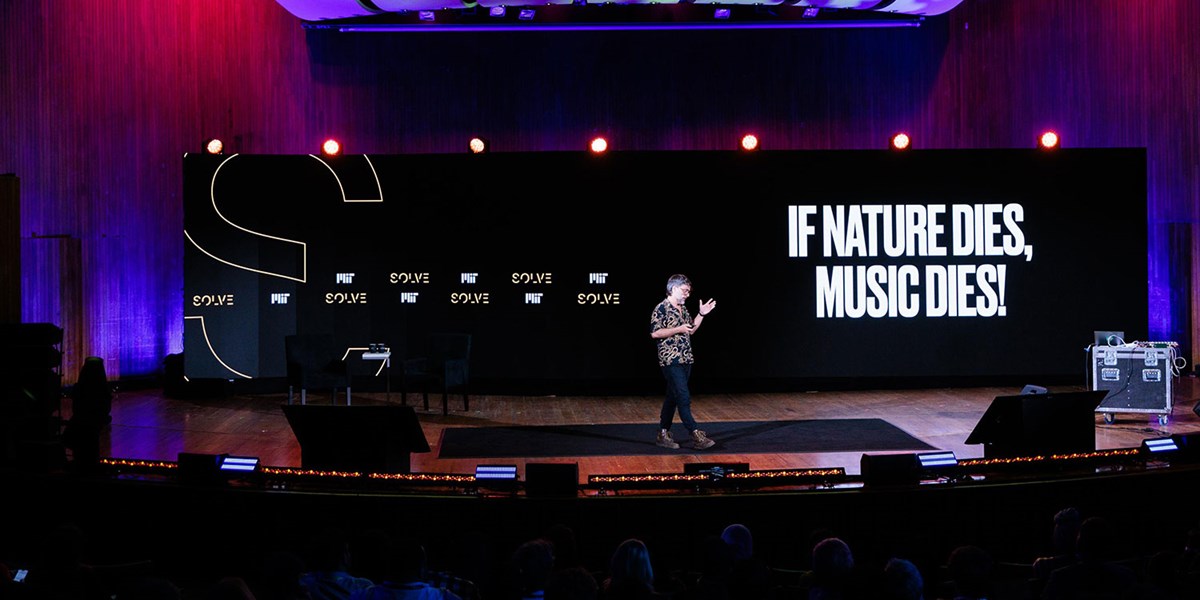Thursday, January 30, 2025
What Can Musicians and Music Lovers Do During a Climate Crisis?
With the earth passing 1.5 degrees celsius of heating in 2024, and recent natural disasters exacerbated by climate change, we asked artists and researchers how to play and enjoy music while respecting and helping the planet

Simón Mejía presenting Yuma at COP16 in Cali, Colombia, October 2024

Register now to continue reading

Thanks for visiting the Songlines website, your guide to an extraordinary world of music and culture. Sign up for a free account now to enjoy:
- Free access to 2 subscriber-only articles and album reviews every month
- Unlimited access to our news and awards pages
- Our regular email newsletters

